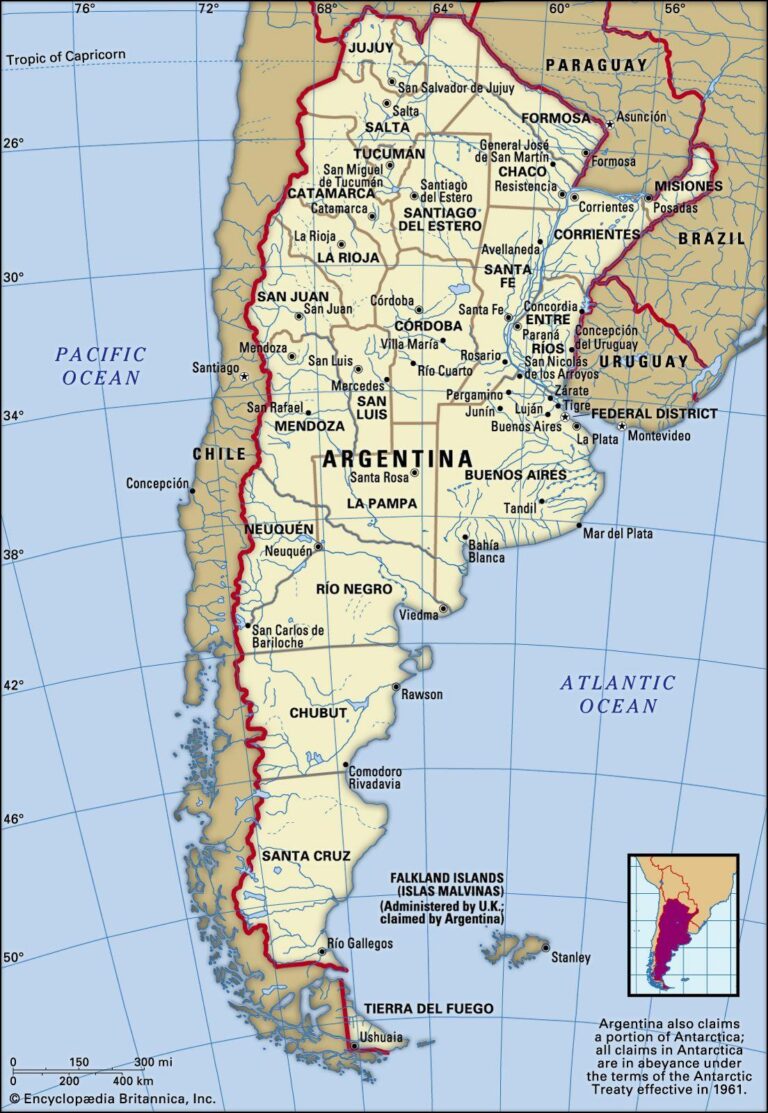Argentina Secures $42 Billion from IMF and Global Lenders as Currency Controls are Lifted
In a strategic financial initiative aimed at revitalizing its faltering economy, Argentina has successfully obtained $42 billion in funding from the International Monetary Fund (IMF) alongside support from various international lenders. This pivotal agreement coincides with the nation’s decisive move to abolish long-standing currency controls that have stifled economic progress and fueled inflation. The arrangement, forged during a period of significant economic instability, represents a crucial moment in Argentina’s quest to restore investor trust and tackle the challenges posed by an unpredictable financial environment. As the government gears up to implement these essential reforms, the repercussions for businesses, consumers, and the overall economy will unfold over time.This advancement not only indicates a potential transformation in argentina’s fiscal approach but also underscores the intricate relationship between global finance and domestic economic policy.
Argentina’s Economic Recovery Backed by $42 Billion IMF Agreement
In a notable turnaround, Argentina has finalized negotiations for a substantial $42 billion agreement with the International Monetary Fund (IMF), complemented by additional financial support from other global partners. This groundbreaking pact is integral to the country’s comprehensive strategy aimed at stabilizing an economy that has been beset by rampant inflation and currency volatility for years. By lifting currency restrictions that previously limited exchanges of Argentine pesos for foreign currencies, authorities anticipate bolstered investor confidence along with increased foreign direct investment. The government is focused on fostering an environment conducive to buisness growth through transparent policies and unwavering commitment to fiscal responsibility.
This deal signals a transformative phase for Argentina’s economy as it confronts critical issues such as soaring inflation rates currently estimated at around 100%, coupled with significant national debt levels. by relaxing capital flow restrictions and enacting structural reforms, Argentine officials aspire to rejuvenate economic growth while enhancing living standards for their citizens. Key elements of this economic strategy include:
- Optimizing fiscal policies aimed at curbing budget deficits.
- Boosting exports via incentives and trade agreements.
- Increasing public investment in infrastructure initiatives.
- Tightening monetary policy to mitigate inflationary pressures.
The agreement stipulates specific benchmarks that must be met by Argentina before accessing further funds in subsequent phases of disbursement. This structured framework not only promotes accountability but also nurtures collaborative ties between the Argentine administration and international stakeholders. the broader implications of this economic plan can be illustrated through key indicators:
| Economic Indicator | Current Value | Aim value | |
|---|---|---|---|
| Inflation Rate | 100% | 50% by end of 2024 | |
| -2% | 2% by end of 2025 | ||
| Public debt-to-GDP Ratio | 90% | 70%by endof2025 |
The journey toward recovery may be fraught with obstacles; however, this extensive IMF partnership could provide vital momentum needed for an economic revival. With both government officials and citizens preparing for substantial changes ahead, upcoming months will prove crucial in assessing how effectively these ambitious reforms are executed.
Effects of Removing Currency Controls on Local Economy and Inflation Rates
The recent choice made by Argentina to eliminate currency controls signifies a critical juncture within its economy—one that will considerably affect local markets as well as inflation rates across sectors. By dismantling these barriers, authorities aim to stimulate foreign investments while enhancing liquidity within peso transactions.<strong Analysts predict this shift will foster greater competition among businesses; consequently creating more vibrant market conditions.New entrants into various industries may drive innovation forward ensuring consumers benefit from diverse product offerings.
this newfound freedom regarding currency management could lead initially towards heightened inflationary trends due primarily due increased demand meeting limited supply constraints.This scenario presents policymakers with complex challenges; they must strike equilibrium between promoting growth while mitigating risks associated runaway price increases.The government’s collaboration efforts involving IMF suggest readiness implement stabilization strategies including possible interest rate adjustments alongside fiscal measures.To illustrate anticipated shifts within different sectors consider following table summarizing projected impacts on respective industries:
| Sector | <Expected Inflation Rate (%) | <Impact | |
|---|---|---|---|
Strategies For Sustainable Growth During Financial Restructuring efforts
As part ongoing restructuring process following securing$42billion dealwithIMFandotherfinancialpartners experts emphasize importance pragmaticapproachesthatensurelong-termgrowthpotential.Liftingcurrencycontrolsopensdoorforincreasedforeigninvestmentwhilecreatingmoreattractiveeconomiclandscape.Neverthelessgovernmentmustprioritize stabilitythroughimplementationpoliciesthatmanageinflationpromoteopennessfosteraccountability.Keymeasuresmayinclude:
- <Strong Strengthening Fiscal Responsibility:< / Strong Establishing clear budgetary goals reduce deficits.
- <Strong Enhancing Trade Relations:< / Strong Expanding diplomatic ties boost exports diversify trading partners.
- <Strong Investing Infrastructure:< / Strong Focusing transportation energy projects drive industrial growth.
- <Strong Creating Public-Private Partnerships:< / Strong Leveraging private expertise funding public projects.
- <Strong Fostering Entrepreneurship:< / Strong Providing incentives smallbusinessesstimulatejobcreation.
- <Strong Promoting Education Skill Development: Ensuring workforceequippednewdemands.
Conclusion
Argentina’s recent decision secure$42billionfundingfromInternationalMonetaryFundandotherinternationalentitiesrepresentsasignificantturningpointforthecountry’seconomy.Byliftingstringentcurrencycontrolsgovernmentaimsstabilizepesoandrestoreinvestorconfidenceamidongoingfinancialchallenges.Thismoveexemplifiesbroadercommitmentstructuralreformsfiscalresponsibilityessentialnavigatingcomplexglobalfinancescape.AsArgentinanavigatesthiscriticaljunctureinternationalcommunitycloselymonitorstepsimplementchangesimpactdaily livescitizens.Roadaheadremainschallengingbutthisdevelopmentoffersglimmerhopeeconomicrecoverygrowthcountrygrapplingprofoundfiscalissues.
Additionally engaging stakeholdersfromvarioussectorswillbecrucialshapingcoherentnationalstrategy.Collaborativeapproachesinvolvingbusinesseslaborunionscivilsocietycanleadinnovativesolutionsaddresslocalcontexts.Establishingsolidinstitutionalframeworksupportinitiativesvitalmanagingexpectationsrallypublicsupport.For effectiveimplementationstateprivatesectorsshouldconsider:




